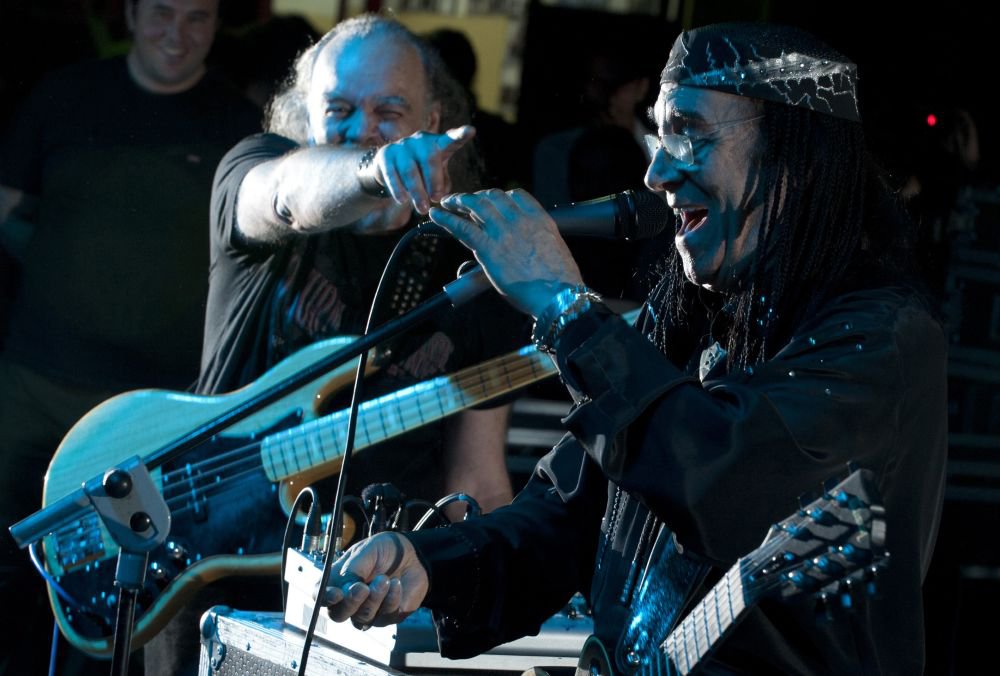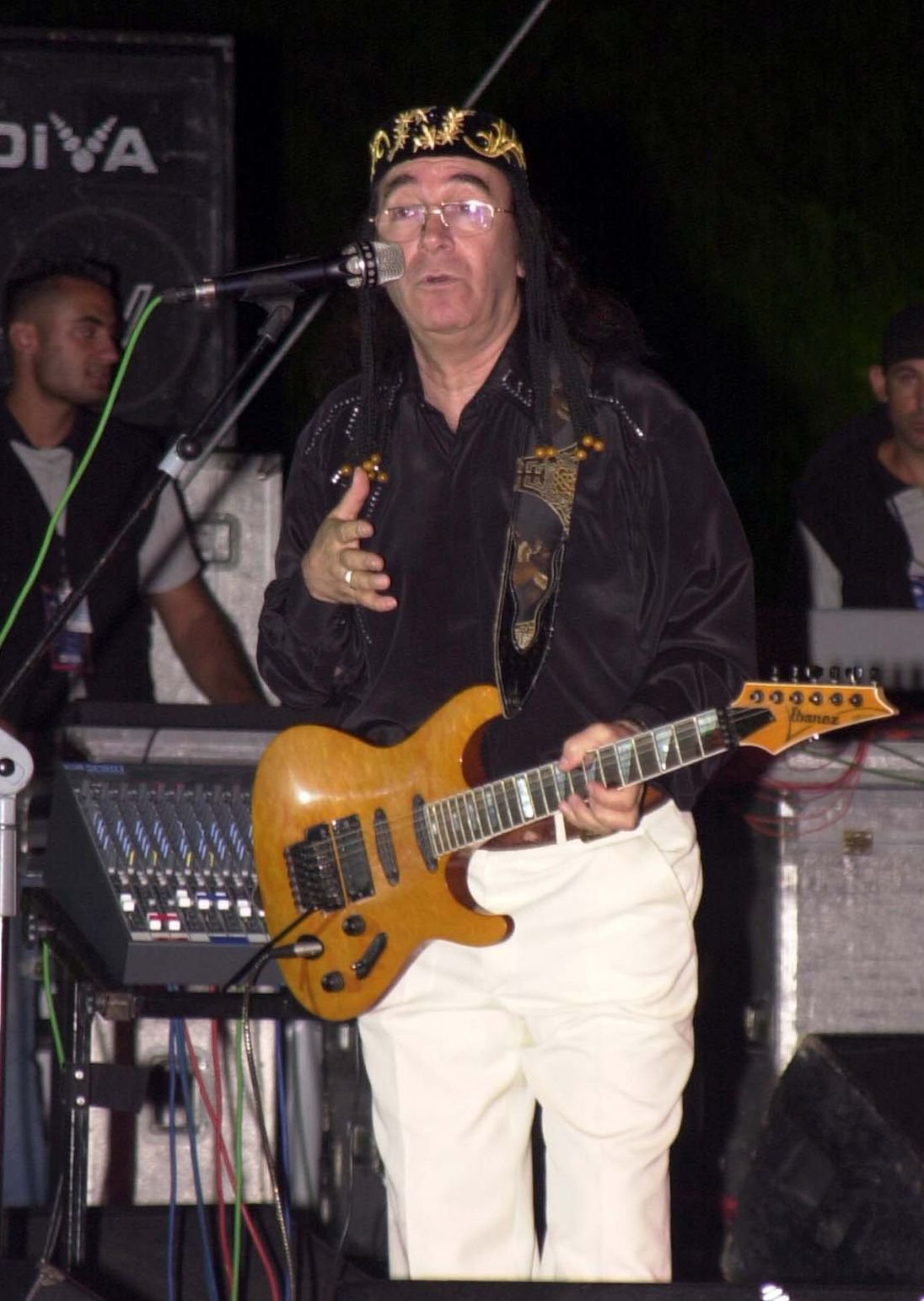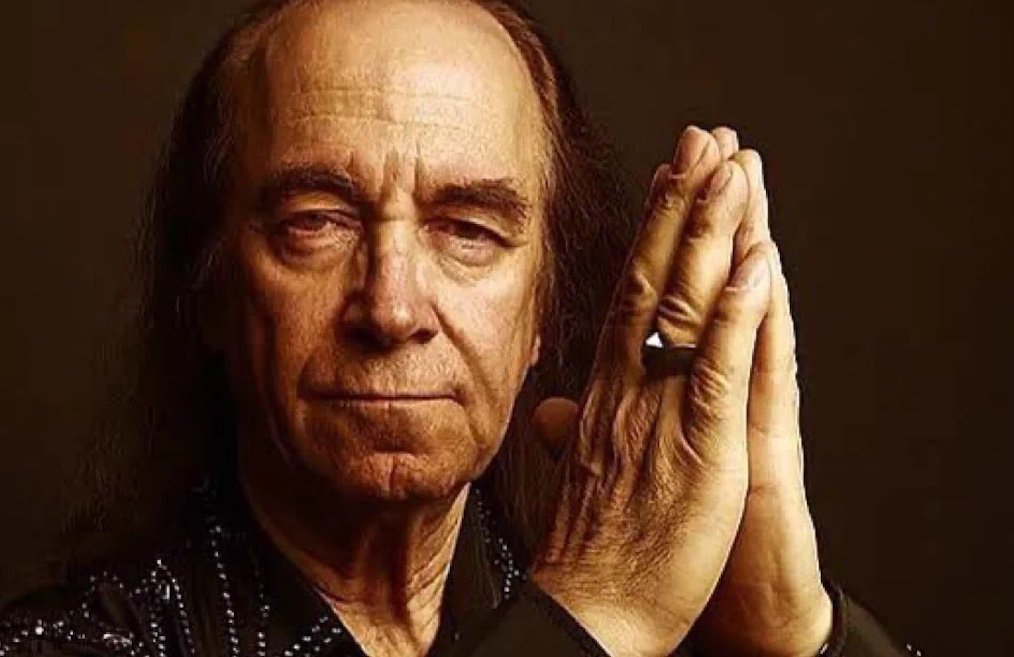Click to read the article in Turkish
"Anatolian Rock" pioneer Erkin Koray has passed away at the age of 82 in a hospital in Toronto, Canada, where he had been undergoing treatment.
Born in İstanbul on June 24, 1941, Erkin Koray's musical journey began with piano lessons from his mother, Vecihe Koray, a piano instructor. His interest later turned to the guitar during his music education, and he started playing in amateur groups with his high school friends. While studying at the German High School in İstanbul, he formed "Erkin Koray ve Ritmcileri" (Erkin Koray and His Rhythmics) and performed popular songs of the era. After completing high school, he began working in musical venues in 1962. He released his first 45 RPM record, featuring "Bir Eylül Akşamı" on one side and the English song "It's So Long" on the other, in 1966.
Following his military service, Erkin Koray briefly collaborated with the German music group The Hiccups in Hamburg. He returned to Turkey with the group's bass guitarist, Bernhard Weber, and formed a new band with guitarist İlder Tokcan and Fikret Zolan, focusing on beat music. With his beatnik style and local representation of the Beat Generation music, he gained prominence. His English-language album released in 1966 did not achieve the desired success.
“The first Turkish-language rock song”
In 1967, he achieved his first success with a Turkish-language 45 RPM record containing the songs "Kızları da Alın Askere" and "Aşk Oyunu." Particularly, "Kızları da Alın Askere" with its theme and lyrics made Erkin Koray widely recognized among young music enthusiasts. Discovered by a record company while performing at a nightclub, the song became the "first Turkish-language rock song" and quickly reached around 800,000 sales in a country with a population of just 30 million, with only 30% living in urban areas.
 Photo: AA
Photo: AA
In 1968, Erkin Koray participated in Hürriyet Newspaper's music competition "Golden Microphone" with his vocal performance and the team consisting of Tuncer Dürüm, Ziya Bakanay, and Sedat Avcı. They ranked fourth with the bolero-style "Meçhul" and instrumental "Çiçek Dağı." Released after this competition, the single of these two songs reached 800,000 sales.
Following this initial success, Erkin Koray managed to establish his musical identity among different segments of society with songs like "Anma Arkadaş," "Hop Hop Gelsin," "Sana Bir Şeyler Olmuş," and "Seni Her Gördüğümde," all of which achieved significant sales figures and continued to be played on radios and TVs.
Erkin Koray and politics
Erkin Koray was not only a musician with a widespread audience, solid musical education, and cultured background but also a figure engaged in cultural battles, politics, and social struggles. His political and philosophical approaches, different from the distinct consistency seen in post-1990 groups and artists such as Grup Yorum, Mor ve Ötesi, Yeni Türkü, Kardeş Türküler, Tarkan, Sezen Aksu, and others who either maintain a strong political stance or remain apolitical, can be described as eclectic and, therefore, rightism deviating from the mainstream.

In 2007, during his concert at the İstanbul Open Air Theater marking his 50th year in music, he justified his vote for the ultranationalist MHP by saying, "If we did it, we have our reasons. Otherwise, I'm neither right-wing nor left-wing." He also participated in the heated headscarf debate of those years, commenting, "While Arabs are trying to free themselves from headscarves and full veils, we are doing the opposite. This is very sad." However, when it came to the MHP's agreement with the ruling AKP in the following years, he concluded, "I no longer have an opinion. I have nothing more to say about the MHP," marking the end of his involvement in politics.
Beatnik years
However, Erkin Koray's fervently lived beatnik years, which he described as "quite risky" to roam around with long hair as a man, were characterized by a passionate and resilient persona. This aspect of his character is revealed through his reflective conversation with Nurbanu Güney in an interview published by Akşam newspaper.
When asked, "Why didn't you give up?," he replied, "It wouldn't have any value then. Some people need to be like this so that certain things can emerge." He indeed held this perspective, but his ultimate conclusion was, "For example, if we didn't struggle to avoid joining the European Union, that would be the wrong thing to do. We have no business with the European Union. We are fine as we are. The things the European Union wants us to accept for membership would harm us beyond our capability to handle."
When questioned about his political foresight, he expressed, "I am someone who contemplates these matters. I am not just someone who plays the guitar. In fact, I think it would be great if the right-wing and left-wing, MHP and Workers' Party, were to unite." He even believed this to be a "very difficult" prospect, showing his naivety.
A fan of John Lennon
Erkin Koray's aspiration for the merger of the MHP and the Workers' Party (Doğu Perinçek's one) could be considered a "utopia." Interestingly, his idol, John Lennon, stood as a paradox. Meeting Lennon was an unforgettable experience for Koray, and he admired Lennon for the following reasons: "[...] I really wanted to meet John Lennon, who was killed for advocating peace. Our ideologies were quite similar [...] He was a great thinker, the brain behind the Beatles. That's why he was killed. They didn't feel the need to kill the others."

Erkin Koray departed from this world, leaving behind a complex question about the political significance of being able to admire both the "great thinker" John Lennon, who was killed for peace, and Muhsin Yazıcıoğlu, the Grey Wolves leader during the 1970s, who was pro-war.
“Influences”
During the ongoing debates that never ceased even in his lifetime, Erkin Koray's repertoire held many songs and lyrics, some of which were initially thought of as "Arabesque" but were later discovered to be based on intricate Arabic melodies with Turkish lyrics, adding to his artistic legacy. Among these, his Turkish rendition of Samir Yazbek's Arabic song "Veli Veli Men Hobbun" was titled "Fesüpanballah," his instrumental interpretation of "Enta Omri" by Umm Kulthum was named "Bu Sana Son Mektubum," and songs like "Boşuna," "İlla Ki," and "Deli Kadın," taken from the only album released by the American Hard Rock band The Devil's Anvil in 1967, became some of the most well-known pieces.
On the other hand, Koray's fans defend his artistic integrity, asserting that these songs were not mere imitations but “influences.” In contrast, they claim that The Rolling Stones' well-known track "Paint it Black" (1966) was actually influenced by Erkin Koray's "Bir Eylül Akşamı," released in 1963.
Here is a playlist of Erkin Koray's popular songs:
(AEK/VK)




